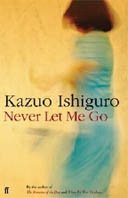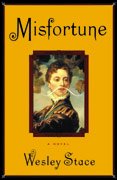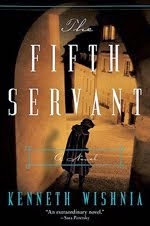The MRT (Metro Rail Transit) is the perfect place to get pissed off at people.
I commute to work via the MRT everyday, and more often than not, I encounter idiots on the train. And I'm sure that at some point, people with common sense and good manners have encountered at least one of these annoying types (I know I have--several times over the past few years):
Men Who Don't Like Getting Their Balls SquishedThese are the guys who take up too much seat space by spreading their legs far apart. I know guys can't sit with their knees together like girls because it can get uncomfortable for them down there, but they shouldn't sit spread-eagled either-- to the utter discomfort of the people beside them who get sort of squashed into a corner. This annoying habit of some men indicates a total lack of breeding and a ridiculous display of manhood.
I happened to encounter this type a few days ago. He went inside the train and sat down beside me spread-eagled, like he had his own sofa in the MRT. As a not-so-subtle hint, I sort of jabbed him at the side with my bag so that he could move over and sit more properly. He looked at me and I glared at him. Good thing he got the picture.
Those Who Hog the PostEvery train has a number of vertical posts where one can hold on to in order to avoid losing one's balance and making a fool of one's self. There are even those safety handles which are attached from the top so that all you have to do is reach up and hold on to a handle for balance. (But females usually prefer the vertical posts because these are more accessible.) It completely pisses me off when the train is jam-packed and I see a person who hogs the post by leaning on it with his/her entire body, thus depriving other commuters with the right to hang onto that particular post. Filipinos are usually not confrontational, and some commuters would rather be content to let the matter slide and grip a small part of the post that isn't occupied by the leaning idiot. Sometimes, there are several individuals already trying to hold on to that one post while the leaning idiot remains oblivious to the number of hands that are wedged in between the pole and his/her back. It's amazing how inconsiderate some people really are.
There was this big bouncer-like man who went inside the train one time and actually had the audacity to lean on the post that I was already clinging to, along with other commuters. My knuckles could feel the sweat on his back (It was a hot day and Bouncer Boy was wearing a tight black shirt so he must have sweated buckets while walking outside) and I made several attempts to jab his back with my knuckles to show him that, hey, you're leaning on my hand, you big half-wit. But his sensory nerves must have been shot because he didn't seem to feel my knuckles digging into his flesh. Finally, I got fed up and tapped him on the shoulder. In a voice loud enough for the other commuters to hear, I said "Excuse me.
Pa'no naman kakapit nang matino ang mga ibang pasahero kung inangkin mo na yung buong poste? 'Di mo ba nakikita na marami kaming humahawak dito? Tapos pawisin ka pa!"
He was so startled (and probably even embarrassed by the comment I made on his profusely sweating physique) that he moved far away and stood in a corner of the train. Not once did he try looking in my direction. Served him right. *evil laugh*
Those Who Broadcast the Contents of Their Audio PlayersThere was a bunch of us MRT commuters sitting/standing quietly inside the train when out of nowhere the unmistakable sound of R&B music jarred the relatively tranquil atmosphere. Apparently, one of the passengers--a girl--was tinkering with her Sony Ericsson P800's audio player. I thought she was just testing the loudspeaker mode of the phone's audio player but after several minutes of watching her switch from one song to another (and man, she was even moving her body to the beat of the music), I got annoyed.
Since I had a tiring day at work and was in a not-so-great mood, I said somewhat snappishly, "Could you please stop playing your music on loudspeaker mode? Not everyone shares your taste in music."
Everyone's entitled to freedom of expression and the right to listen to their favorite music. But just because this girl likes to listen to Usher or whoever doesn't mean that the rest of us have to endure a public broadcast of her collection of rap and R&B music on the MRT. She could have used earphones, for Pete's sake.
Ringtone-Happy People"Ringtone-happy" people are those that get a kick out of listening to their entire gallery of mobile ring tones. In public. And in full volume for everyone to hear.
Is that a ringtone-happy person's way of showing off his/her collection of ringtones? Are the rest of us in the MRT supposed to be enamored with that person's polyphonic ringtone of the horridly ubiquitous Pinoy Big Brother theme song and secretly envy him/her for having one? I don't get it, really.
Whenever I encounter a ringtone-happy person in the train, I turn up the volume of my iPod so I can drown out such sounds.
Those Who Talk on the Phone Too LoudWell, I believe in freedom of speech but why do some people have to carry out personal conversations on their mobile phones which can be heard by anyone within seven meters? On several occasions, I've managed to hear other passengers talk loudly about family fights, first dates (blow-by-blow accounts which either made me wince or snicker) and even debts over the phone. Wow. I guess some things aren't that private for some people anymore.
People Who Act Like Wild CattleThese are the people who participate in the stampede to get into the MRT and find seats--forgetting all the while that there are passengers who need to get out of the train
first.
One time, I was about to go down at my stop; the train was slowing down and I was standing right in front of the train doors, just waiting for these to open. When the doors did open, this guy on his way in practically knocked me down. He totally pushed me back further inside the train so that he could enter. And I could feel a crowd of people surging inside as well. Outgoing commuters were yelling,
"Hayaan mo muna kaming lumabas ng MRT!" I was so furious at this cretin of a man that I pushed him with all the necessary force to get him back right out of the train. (Anger does wonders to physical strength.) He was wearing a jacket with a few tassels on the collar area and I flung the tassels onto his face, shouting expletives at him. I think a few people cheered as I berated him for his boorishness.
On most days, I'm a pretty nice and well-mannered person. But when someone intrudes on my personal space (and in this particular case, lays a hand on my person) with a complete disregard for proper public behavior--I turn into a war freak. What that oafish man did was just plain rude, and I never tolerate such behavior.
I still get riled up whenever I recall that incident. If I had the opportunity of running into him again, I'd kick him in the groin.
Dan Brown Readers in the MRTOkay, reading Dan Brown's
The Da Vinci Code isn't exactly a crime against humanity, or even a minor commuter crime for that matter. I guess encountering people reading Dan Brown novels in the MRT is a pet peeve of mine. Really, can't people read someone else besides Dan Brown? I've seen, like, more than 50 people on countless occasions hunched over tattered copies of
The Da Vinci Code (obviously the book has been passed around from person to person like fruitcake) in various places and modes of transportation.
I can remember an instance when I was reading Giovanni Boccacio's
The Decameron in the MRT while the person sitting beside me suddenly whipped out--guess what?--
The Da Vinci Code from his backpack and proceeded to read. Another time, I was reading James Joyce's
Ulysses (one of the most complex novels ever but a rewarding read nonetheless) and the passenger beside me took out her copy of
The Da Vinci Code. I felt faintly insulted somehow: I was reading notable literary works while commuters nearby took delight in that blasted
Da Vince Code book, the gospel of mass-market readers. Of course, this is just the lit snob in me talking.
Other people think my abhorrence for Dan Brown stems from a supposed violent reaction to the controversial stuff found in
The Da Vinci Code. Well, that's not the reason. I don't mind the religious controversy that Brown so gleefully stirs up. People will always have different views on religion as well as speculations on the life of Jesus (to whom other people in the secular world would consider simply as a prophet with very human qualities while devout Christians would deem him as the son of God or God Himself). I think it's just a matter of respecting other people's individual religious beliefs.
So what's wrong with Dan Brown?
Well, I find his style of writing utterly trite and corny:
The wheels are in motion.
It is time.
Jacques Saunière was the only remaining link, the sole guardian of one of the most powerful secrets ever kept.
WHAT THE F@#K?! Sentences like these reek of cheap drama.
I'm no professional book critic but in my opinion, Dan Brown had a great plot to begin with and yet failed to deliver his story in a more intelligent way. In the hands of, say, Umberto Eco, the book would have turned out much better. Eco's version would have been less commercially appealing but more capably written. I think Mr. Brown should keep in mind that one doesn't have to resort to cliffhanger chapter endings and a dizzying round of plot twists to come up with a fantastic story.
There are a lot of great books out there. I really think people should exert the effort to go beyond pulp fiction and read good literature.
PS. Whenever I want to feel good about myself, I read Geoffrey K. Pullum's
review on The Da Vinci Code. At least I'm comforted with the fact that there are people out there who also have violent reactions to Brown's prose style, or lack thereof.






